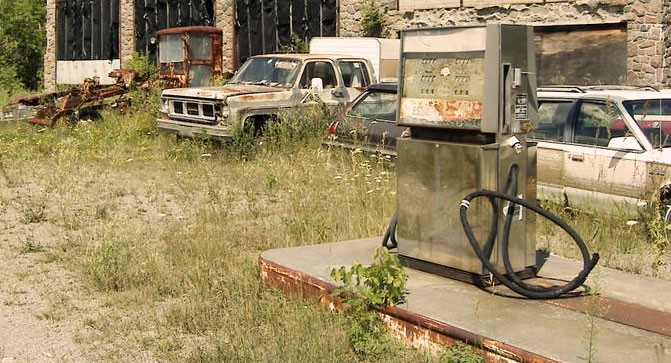
Forget the damned motor car and build the cities for lovers and friends.
The title of this post, a famous quote from Lewis Mumford, just about sums up my feelings after attending an information session about the City of Waterloo's new proposed rental bylaw.
If you're a resident of Waterloo and haven't heard of the proposed bylaw changes, read up on it here and then send the city staff an email with your feedback. We need as many people as possible engaged in this issue.
While I agree with most of the proposed changes, there's one part of the report that I'm not happy about. The proposed bylaw will require anyone who rents out a room to get a license. I'm fine with that, but one of the prerequisites for this license (as I understand it) is to provide at least 1 parking spot for each unit on the premises.
At the consultation meeting I went to, Director of Bylaw Enforcement Jim Barry held a wonderful Q&A session where I asked why the provision of parking is necessary in a rental bylaw. The way I see it, the city and the region are both encouraging dense, intensified development and investing heavily in our public transit systems. My concern was that these parking spaces might become gaping holes in the urban fabric along future transit corridors, such as Erb Street.
Mr. Barry's response was that the demand for parking is actually increasing, not decreasing, and that this requirement would prevent people from parking willy-nilly on their front lawns for example, which would be a bylaw violation. Fair enough points, but I have some further concerns after having mulled this issue over in my head for a few days.
In my mind, the parking requirement should have nothing to do with the rental bylaw. A rental bylaw is not the appropriate place to lay out traffic policy. What is relevant in the rental bylaw is issues that directly affect the well-being of tenants (such as the fire code). But this parking requirement seems superfluous, considering a large chunk of renters in Waterloo are students who don't own cars.
I would advocate for leaving the parking issue up to the discretion of landlords. Not all renters require a parking space, and for some tenants, that space may be more attractive as an outdoor amenity space for barbecues or patio parties.
Mr. Barry says that the demand for parking space is rising. But I have the feeling that it will decline in a few years once the region's rapid transit grid starts to mature. This part of the proposed bylaw will become obsolete when there are more transportation options available.
For this reason, I would keep traffic policy separate from rental policy. The city's zoning and traffic laws are better-suited to respond to the parking issue than a rental bylaw. The worst case down the road would be to have a redevelopment project stymied by an archaic clause in the rental bylaw that requires a slab of bare concrete on every rental property.
To sum up, this parking requirement doesn't belong in the rental bylaw, and it contradicts the city's progressive work towards better mobility for all its inhabitants.
Sam Nabi